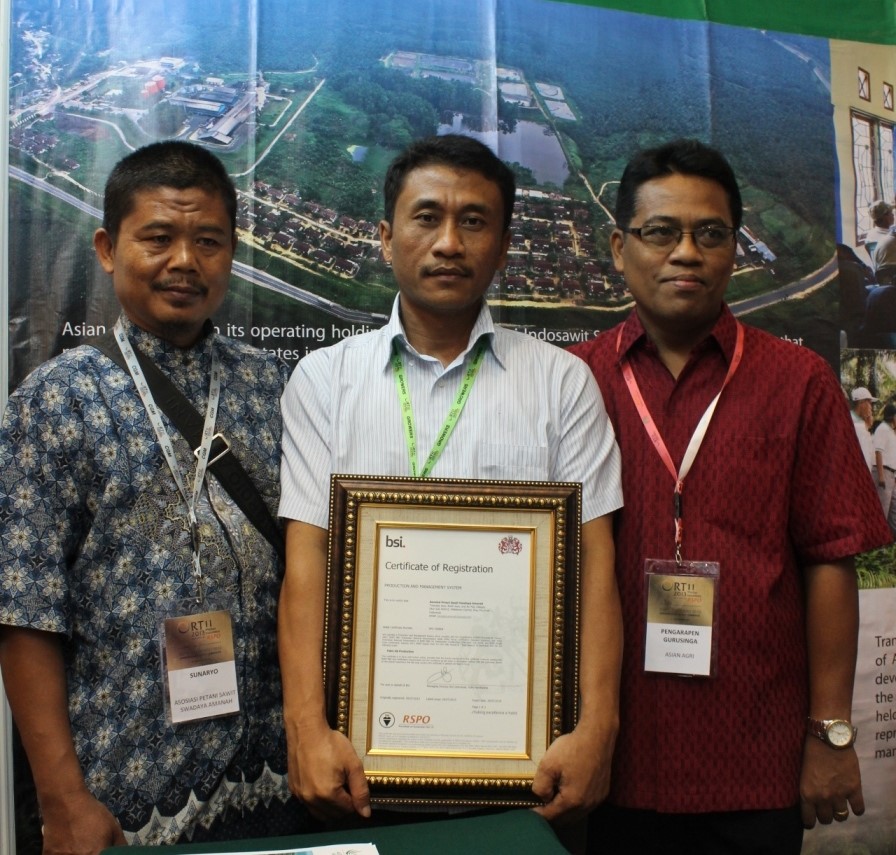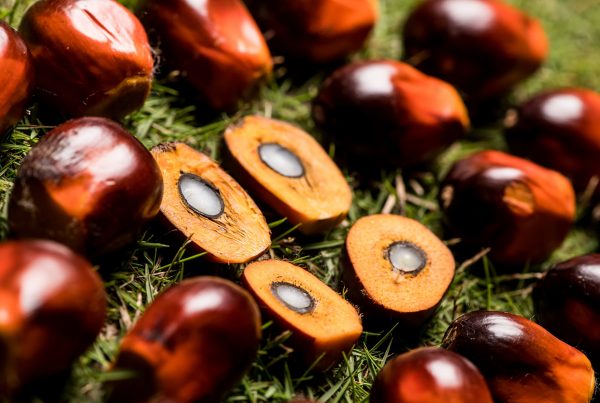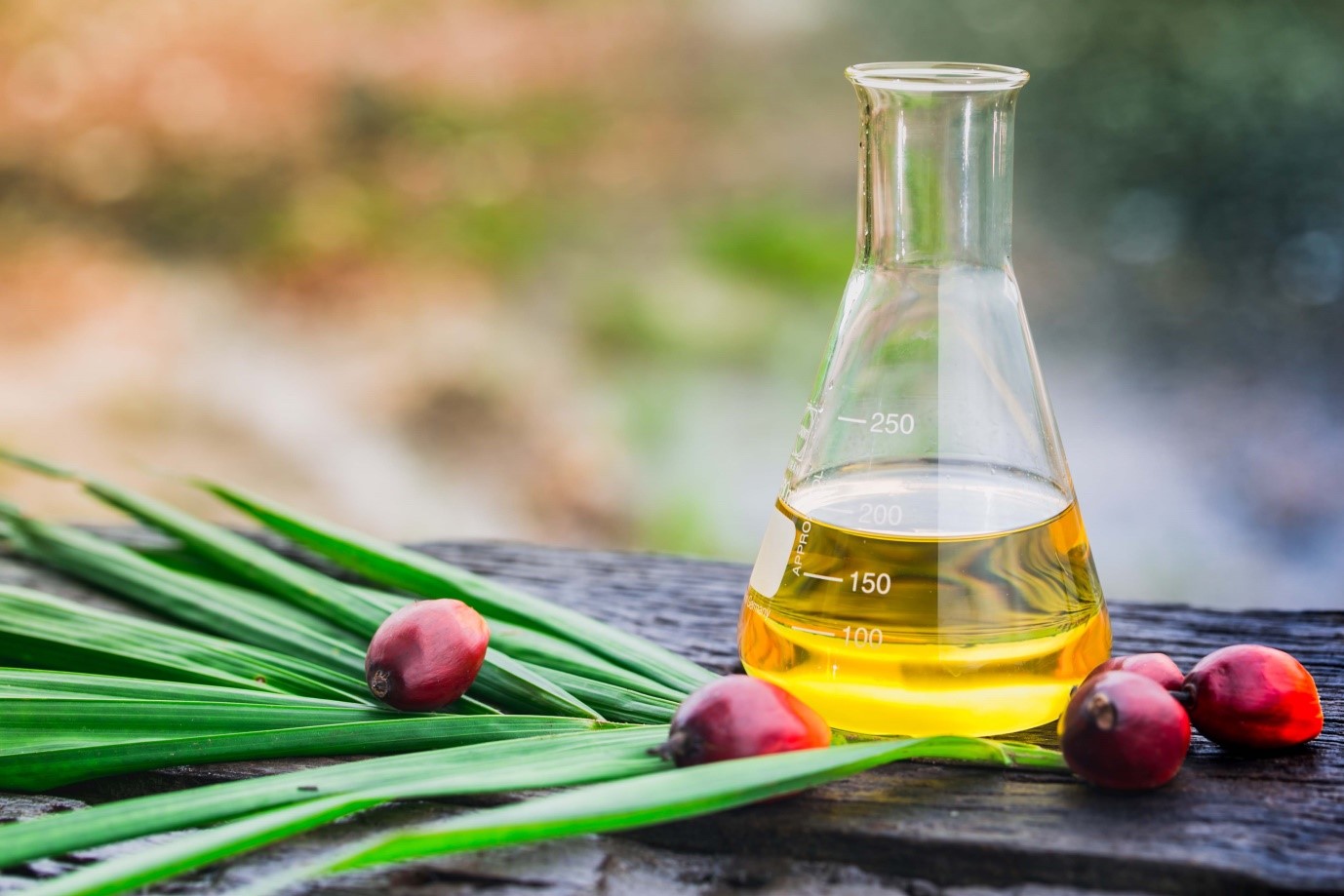Palm oil is in everything from bread and cakes to shampoo and toothpaste. It’s also in the headlines, with increasing focus on its environmental credentials. The question consumers want answered is, is palm oil sustainable?
Palm oil that is certified by the RSPO (Roundtable on Sustainable Palm Oil) is sustainable. Not only that, sustainable palm oil is by far the most efficient way to meet the world’s growing demand for vegetable oil, using as little as one tenth of the land as rival crops to produce the same volume of oil.
First let’s look at why we need vegetable oil in the first place. Aside from its obvious use for cooking, vegetable oil is an important ingredient in a wide variety of products. It gives pastry its crumbly texture, it prevents ingredients from sticking together, and it helps bind cosmetics together. Around half the packaged products sold in the supermarket contain palm oil, and that’s not including other types of vegetable oil.

Many of the products we rely on every day would not be possible without vegetable oil, and demand is increasing as the global population grows and incomes rise.
Why palm oil is the best way to meet demand for vegetable oil
That brings us onto productivity. Oil palms are by far the most efficient type of vegetable oil crop. Rival crops such as soybean, rapeseed and sunflower need as much as 6-10 times the amount of land to produce the same amount of oil. As the International Union for the Conservation of Nature pointed out in this report, replacing oil palms with other oil crops would result in massive deforestation to clear additional farming land, actually worsening the problem those advocating for a ban are hoping to solve. In fact to replace palm oil with oilseed crops would require an additional 50 million hectares of farmland – that’s roughly equal to an area the size of Spain.

If the world cannot do without vegetable oil, and palm oil is the best way to meet demand, then the solution is to make the palm oil industry more sustainable.
The role of certified palm oil
This is where certification plays an import role. Certification bodies like the Roundtable on Sustainable Palm Oil (RSPO), which Asian Agri joined in 2006, provide a robust framework for this, banning deforestation, protecting peatlands and setting clear rules on human rights. In fact in November 2018 more than 4,000 members from industry, government, academia and NGOs voted overwhelming to adopt even stricter standards, in a move welcomed by WWF as “a significant step forward”.

Certification is increasingly becoming the norm – Indonesia’s ISPO standard is now a legal requirement for palm oil producers in the country. But challenges remain, particularly among smallholder farmers, who in Indonesia account for 41 per cent of production. Many of them lack the skills and resources needed to undertake certification, which can be an expensive and time consuming process.
For that reason in 2013 Asian Agri partnered with WWF and Carrefour on a pilot project, which resulted in a cooperative becoming the first group of independent smallholders in Indonesia to achieve RSPO certification.
The company also partnered with UNDP and Tanoto Foundation on a pilot project to help independent smallholders earn ISPO certification, which resulted in the group becoming the first in Indonesia to achieve it.
Asian Agri also works with smallholder farmers through its One to One Partnership Commitment, which saw the company match each hectare of its own land with one owned by a smallholder farmer. As Bernard Riedo, Director of Sustainability and Stakeholder Relations at Asian Agri, explains, this helps them to improve their productivity while also farming in a more sustainable manner.
Improving palm oil traceability
Those partnerships also help ensure traceability, which is not easy in the palm oil industry, with its long supply chains of producers, traders and middlemen. Asian Agri achieved 100 per cent traceability in 2017, but it was a long and challenging process.
For this reason Asian Agri became a founding member of SUSTAIN, a group of oil palm growers, palm oil processors, consumer goods manufacturers, not-for-profit organizations and technology leaders who are using blockchain to improve palm oil traceability.
The role of consumers
Consumers have a role to play too. For some time the conversation around palm oil has been so one-sided that brands have been reluctant to admit to using it all, listing generic ingredients such as ‘vegetable oil’ instead. Brands using sustainably-certified palm oil are entitled to use a logo on their packaging, similar to Fairtrade Coffee, but few have done so, at least in Western markets.
As consumers we can encourage brands to source sustainably-certified palm oil, rewarding those that do and avoiding those that do not. As Dr Jennifer Lucey, from the University of Oxford’s Department of Zoology, points out, demand for sustainable palm oil is largely driven by America and Europe. If those countries pull out of the market then the rules will be set by importers who value price above sustainability.
As a whole, the palm oil industry is not perfect. RSPO bans deforestation for palm oil production, but membership of the certification scheme remains voluntary. Companies like Asian Agri are working to spread sustainability certification to Indonesia’s 1.7 million smallholder farmers, and consumers are beginning to recognise the difference between sustainable and unsustainable palm oil. There is more to do, but there are many positives.
When properly managed and certified, palm oil is sustainable. And as global demand for vegetable oil increases, sustainable palm oil is the best way to meet it.




